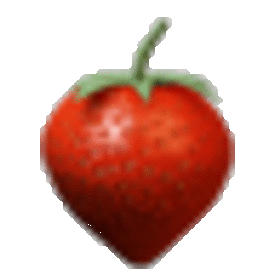Try to understand the concept behind low carb diets
Replies
-
That was a huge salad!
Yes it was and I made another one almost as big today. I still have about 3/4 of it left. Just the chewing alone is going to be my workout for the night.0 -
I t happens to people with low blood sugar issues (hypoglycemia). If I were to eat cereal or pancakes for breakfast, inevitably I will get shaky and have intense sugar cravings about an hour later...especially if I am doing something that requires me to burn energy.
Yep, I've had issues with mild hypoglycemia and have the same experience if I don't eat a high-protein breakfast.
I developed prediabetes about 2.5 years ago (I wasn't technically overweight at the time, but both parents, both grandmothers and a bunch of other relatives have Type II diabetes). I did a high-protein, low-carb, low/moderate fat diet and lost about 12 lbs and reversed the prediabetes and also lowered my high triglycerides. So far my blood work has stayed in the normal range since then; I now eat a more moderate fat/protein/carb mix. I have PCOS as well, and many women with PCOS have insulin resistance. Overall there's a decent amount of the population who have some sort of insulin or related issues who may benefit from lower-carb diets.0 -
...I don't fear carbs, fats, or any food at all except mushrooms, they are yucky and grown in poo.
I call dibs on justal313's 'shrooms!
:bigsmile:
Sorry, I give them all to my wife, she LOVES mushrooms.0 -
I'm still working on the lower carb way of eating.. tweaking it. I am finding what works for me. I started to think wow eggs are very filling, then realized they are high cholesterol, and so I am disappointed I cannot have 4 a day like i was thinking - quick easy dinner - omelette. with the egg yolk. I know the good benefits of lower carb eating, but I dont' want to give up the summer fruits and other good carbs I really love. I eat that rather than desserts and added sugar-foods and other high fat food like fried chicken and pizza. I want to see how many good carbs I can eat without just maintaining/gaining weight.
today i went to the store and focused on healthy food. My eye was eyeballing the fresh watermelon, sweet corn, carrots, and these things are probably higher carb, but they really were mouth watering, and I got some Total Raisin Bran cereal, because when i want a quick something because im hungry, cereal usually works. I got some frozen shrimp and made a really delish homemade salad.
I'm going to see how these affect me this week, if my weight loss continues to be 2-3 pounds weight loss, then im doing fine and am going to continue to eat these good foods, even though they will make my carb total a little higher than usual, but i think i will be within my calories and other numbers, and so we shall see.0 -
Slightly off topic but because I've always wondered, where exactly do we get the whole 'we evolved to eat plants' concept when the only reason we evolved the way we did is because some smart apeman figured out how to get the most of out of kill by getting at the morrow? We only have a big fancy brain because we ate lots of red meat. Now granted, this was a long time ago and we have evolved, but this directly contradicts the whole 'plant eater' thing.
That said, I'm in the balanced nutrient crowd. Any kind of restriction diet for any reason other than medical reasons seems make life unnecessarily difficult to me. If I didn't have to watch sodium so stringently, I would spend a lot less time worrying about what I ate and getting other things done.0 -
I'm still working on the lower carb way of eating.. tweaking it. I am finding what works for me. I started to think wow eggs are very filling, then realized they are high cholesterol, and so I am disappointed I cannot have 4 a day like i was thinking - quick easy dinner - omelette. with the egg yolk. I know the good benefits of lower carb eating, but I dont' want to give up the summer fruits and other good carbs I really love. I eat that rather than desserts and added sugar-foods and other high fat food like fried chicken and pizza. I want to see how many good carbs I can eat without just maintaining/gaining weight.
today i went to the store and focused on healthy food. My eye was eyeballing the fresh watermelon, sweet corn, carrots, and these things are probably higher carb, but they really were mouth watering, and I got some Total Raisin Bran cereal, because when i want a quick something because im hungry, cereal usually works. I got some frozen shrimp and made a really delish homemade salad.
I'm going to see how these affect me this week, if my weight loss continues to be 2-3 pounds weight loss, then im doing fine and am going to continue to eat these good foods, even though they will make my carb total a little higher than usual, but i think i will be within my calories and other numbers, and so we shall see.
I like your idea to see what works for you and get the maximum possible I would think that the watermelon & carrots would have been a better choice than raisin bran (veggies & fruit over manufactured box food). It's really hard to eat a ton of carbs if they are only coming from fruits & veggies. I rarely go over 100-125g/day and most days that's all from fruit & veggies. Now, with cereal, I wouldn't be satisfied with just one serving! 0
I would think that the watermelon & carrots would have been a better choice than raisin bran (veggies & fruit over manufactured box food). It's really hard to eat a ton of carbs if they are only coming from fruits & veggies. I rarely go over 100-125g/day and most days that's all from fruit & veggies. Now, with cereal, I wouldn't be satisfied with just one serving! 0 -
nevermind
*sigh*0 -
...I don't fear carbs, fats, or any food at all except mushrooms, they are yucky and grown in poo.
I call dibs on justal313's 'shrooms!
:bigsmile:
Sorry, I give them all to my wife, she LOVES mushrooms.
Try them in a tea with your brownies. :laugh:
:laugh:
(You're welcome!)0 -
There was a time when meat was necessary for the extra calories it gave us, not for the extra nutrition. It was the extra calorie source that helped develop our brains. In today's world of nutritional science, and food distribution networks, we can choose to get enough calories, in a more optimal way. This is an unprecedented time in history. Plus, meat today often times comes from factory farm conditions, where it is loaded with contamination. Animals are confined to small areas, where they stand in their own **** all day, given a wrong diet, given anti-biotics and growth hormones. Whatever minimal nutrients are in today's meat are negated by the toxicity that's contained within.Slightly off topic but because I've always wondered, where exactly do we get the whole 'we evolved to eat plants' concept when the only reason we evolved the way we did is because some smart apeman figured out how to get the most of out of kill by getting at the morrow? We only have a big fancy brain because we ate lots of red meat. Now granted, this was a long time ago and we have evolved, but this directly contradicts the whole 'plant eater' thing.
That said, I'm in the balanced nutrient crowd. Any kind of restriction diet for any reason other than medical reasons seems make life unnecessarily difficult to me. If I didn't have to watch sodium so stringently, I would spend a lot less time worrying about what I ate and getting other things done.0 -
I'm still working on the lower carb way of eating.. tweaking it. I am finding what works for me. I started to think wow eggs are very filling, then realized they are high cholesterol, and so I am disappointed I cannot have 4 a day like i was thinking - quick easy dinner - omelette. with the egg yolk. I know the good benefits of lower carb eating, but I dont' want to give up the summer fruits and other good carbs I really love. I eat that rather than desserts and added sugar-foods and other high fat food like fried chicken and pizza. I want to see how many good carbs I can eat without just maintaining/gaining weight.
today i went to the store and focused on healthy food. My eye was eyeballing the fresh watermelon, sweet corn, carrots, and these things are probably higher carb, but they really were mouth watering, and I got some Total Raisin Bran cereal, because when i want a quick something because im hungry, cereal usually works. I got some frozen shrimp and made a really delish homemade salad.
I'm going to see how these affect me this week, if my weight loss continues to be 2-3 pounds weight loss, then im doing fine and am going to continue to eat these good foods, even though they will make my carb total a little higher than usual, but i think i will be within my calories and other numbers, and so we shall see.
The cholesterol in the eggs will not hurt you. In fact, you will most likely see your serum total cholesterol go down, HDL go up.
Sometimes I eat almost a dozen of eggs a day. My cholesterol has lowered to the point I was told to raise it up a few points.
The sugar and carbs have more of an impact on your cholesterol than fat and cholesterol do.0 -
I'd like to add.... once you have diabetes you cannot unhave it. You can get to the point where you don't need medication and it's well controlled by diet and exercise. But once your pancreas stop working properly there is no fix it button. So when people talk about "reversing" diabetes, it doesn't mean that you no longer have the condition. It means that you have diabetes but you don't need to take medication to deal with it. If you have "reversed" diabetes then you must continue to constantly monitor your diet and your exercise levels etc. Just thought I'd throw that in there in case some people weren't aware.
+1.So true, unfortunately0 -
I'm still working on the lower carb way of eating.. tweaking it. I am finding what works for me. I started to think wow eggs are very filling, then realized they are high cholesterol, and so I am disappointed I cannot have 4 a day like i was thinking - quick easy dinner - omelette. with the egg yolk. I know the good benefits of lower carb eating, but I dont' want to give up the summer fruits and other good carbs I really love. I eat that rather than desserts and added sugar-foods and other high fat food like fried chicken and pizza. I want to see how many good carbs I can eat without just maintaining/gaining weight.
today i went to the store and focused on healthy food. My eye was eyeballing the fresh watermelon, sweet corn, carrots, and these things are probably higher carb, but they really were mouth watering, and I got some Total Raisin Bran cereal, because when i want a quick something because im hungry, cereal usually works. I got some frozen shrimp and made a really delish homemade salad.
I'm going to see how these affect me this week, if my weight loss continues to be 2-3 pounds weight loss, then im doing fine and am going to continue to eat these good foods, even though they will make my carb total a little higher than usual, but i think i will be within my calories and other numbers, and so we shall see.
The cholesterol in the eggs will not hurt you. In fact, you will most likely see your serum total cholesterol go down, HDL go up.
Sometimes I eat almost a dozen of eggs a day. My cholesterol has lowered to the point I was told to raise it up a few points.
The sugar and carbs have more of an impact on your cholesterol than fat and cholesterol do.
I like this.0
This discussion has been closed.
Categories
- All Categories
- 1.4M Health, Wellness and Goals
- 398.3K Introduce Yourself
- 44.7K Getting Started
- 261K Health and Weight Loss
- 176.4K Food and Nutrition
- 47.7K Recipes
- 233K Fitness and Exercise
- 462 Sleep, Mindfulness and Overall Wellness
- 6.5K Goal: Maintaining Weight
- 8.7K Goal: Gaining Weight and Body Building
- 153.5K Motivation and Support
- 8.4K Challenges
- 1.4K Debate Club
- 96.5K Chit-Chat
- 2.6K Fun and Games
- 4.7K MyFitnessPal Information
- 17 News and Announcements
- 21 MyFitnessPal Academy
- 1.5K Feature Suggestions and Ideas
- 3.2K MyFitnessPal Tech Support Questions









